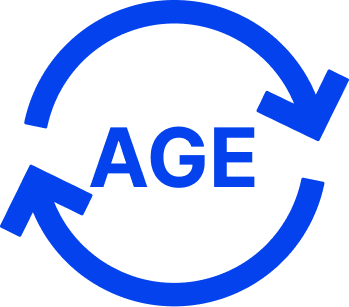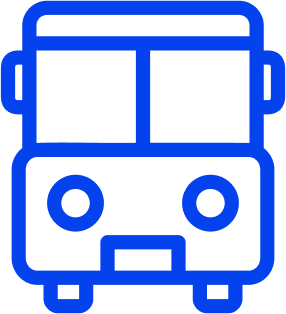Vermont Homeschooling Laws and Resources
If your family is thinking about homeschooling in Vermont, start by learning the laws and requirements. This comprehensive overview provides information, resources, and tools to help make your homeschool journey a success.
Homeschooling in Vermont Overview
Notice of Intent Required: Yes
1 Option for Homeschooling: Home Study
Subject or Curriculum Requirements: Yes
Attendance Age Requirements: 6-16
Record-Keeping Requirements: No
Assessments or Evaluations Required: Yes
Proof of Immunization Required: No
Table of Contents
Vermont Homeschooling Laws and Regulations
How to Start Homeschooling
Home Study Enrollment Packet
Mandatory School Age
Subject Requirements
Attendance Requirements
Record-Keeping Requirements
Evaluations and Assessments
Required Immunizations
Resources for Homeschooling Families in Vermont
Homeschool Organizations, Groups, and Co-ops
Sports Opportunities
Homeschool Field Trips
Special Education Homeschoolers
How Our Curriculum Can Help
Homeschool FAQ


How to Start Homeschooling in Vermont
Vermont law calls homeschooling “Home Study,” but the two terms mean the same thing. The Agency of Education’s Home Study Team is an excellent resource for families as they navigate the legal requirements of home education and prepare to teach their children.
Parents are responsible for all costs involved in home study, including textbooks, curriculum materials, assessments and evaluations, and other necessary items. In Vermont, home study families must do the following:
- File an annual enrollment packet.
- Provide a narrative of the planned courses of study and content (first two years).
- Teach the subjects in the minimum course of study (MCOS) requirements.
- Perform an end-of-year assessment (EOYA) to assess student progress.
Learn more about these items below, and visit the state’s First Time Enrollment page for even more helpful information.

Vermont Annual Home Study Enrollment Packet
Homeschool families must enroll in the Home Study program every year, creating a separate packet for each student. The state begins accepting enrollment packets in the spring for fall enrollment. You may submit your packet using the online enrollment system or by email, fax, or mail.
There are multiple forms required depending on whether you’re a first-time home study participant or re-enrolling. See the state’s Home Study Enrollment Packet Instructions and Checklist for complete details on what’s required. You may need to submit the following:
- Home Study Enrollment Form
- Independent Professional Evidence Reporting Form
- Minimum Course of Study (MCOS) Narrative Learning Plan and Adaptations
- Instructor Enrollment Form
- Assurance of Educational Legal Rights Form
- Parent/Report Letter and End of Year Assessment (EOYA)
MCOS Narrative Learning Plan
Families must submit a learning plan that indicates how they’ll teach the minimum course of study requirements for each student. After two years of successful home study participation, you can qualify for an exemption so you no longer need to submit this form.
TIP: The state requires home educators to include this form for all children aged 12, no matter how long they’ve been homeschooling.
Break your narrative down by subject and include five or six skills/topics for each one. Example items could include:
- Math: Multiply 3-digit numbers
- Literature: Read A Tale of Two Cities
- Science: Newton’s Laws of Motion
Learn much more about creating an MCOS narrative plan here.
Independent Professional Evidence Reporting Form
If this is your child’s first enrollment in the home study program, you will need to have them assessed for potential disabilities. This must be completed by a licensed independent professional such as a healthcare professional, mental health provider, licensed educator, or licensed special educator/related service provider, etc.
If your child has already been assessed and found to have disabilities, you may provide alternative paperwork, such as an IEP or 504 Plan. You’ll be required to include necessary adaptations for them in your MCOS narrative plan each year.
Notice to Home Study Programs
Within 14 business days of submitting your enrollment packet, you will receive an acknowledgment from the state. If your packet is incomplete, you must provide any missing information. If your packet is complete, you’ll be notified when you can begin your home study program.
TIP: Do not withdraw your child from school until you receive notification that your child may begin home study. Otherwise, you’ll violate truancy laws.

Mandatory School Age in Vermont
In Vermont, children must attend school or participate in a home study program from the age of 6 until they turn 16 or complete 10th grade.

Vermont Homeschool Subject Requirements
Vermont home study participants must follow the same minimum course of study (MCOS) as those enrolled in public school. The law says “the minimum course of study means learning experiences adapted to a student’s age and ability” in the required fields, which are:
- Math
- Science
- Reading and writing
- History/civics/government
- Literature
Students age 12 and under must also learn the following:
- Art
- Physical education
- Health
The state does not require Vermont home study families to use any specific learning methods. Parents may choose any curriculum programs, instructional methods, and educational materials they wish. You’re not required to align your programs with the Vermont Education Quality Standards, though you might find them a helpful guideline.

Vermont Homeschool Attendance Requirements
Vermont law does not specify any minimum number of days or instruction hours for home study students. Home educators may wish to align with the public school standard of 175 days per academic year but are not required to.

Vermont Homeschool Record-Keeping Requirements
While Vermont law doesn’t state any specific requirements for home study record keeping, families need to maintain good records to complete both the MCOS narrative learning plan and their EOYA documents.
TIP: Keep copies of all necessary documents in a school file for each child. Detailed information will make it easier to produce transcripts when needed.

Vermont Homeschool Annual End of the Year Assessment (EOYA)
Each year, families must complete an assessment of their child’s academic progress. It’s typically submitted with your re-enrollment packet. This assessment should show that the student met the goals of their MCOS narrative learning plan. You have several options for how to provide an EOYA.
- Parent Report and Student Portfolio: Parents provide a summary of coursework and progress in written form. You also must provide a portfolio of representative work samples, with examples from all courses taught.
- Teacher End of the Year Assessment: A licensed Vermont educator can review your child’s work and progress and complete an End of Year Assessment form.
- Standardized Test: Students may take approved standardized tests to cover available subjects. However, you’ll still need to provide evidence of progress for any MCOS subjects not covered by the tests.
- Teacher Advisory Service Report or Report Card: If your child is enrolled in a purchased curriculum program (such as an online course), you may provide the end-of-course report card or evaluation. If any MCOS subjects aren’t covered in this program, you must provide separate evidence of progress for those subjects.
Find more information on Vermont home study End of Year Assessments here.

Required Immunizations for Homeschoolers in Vermont
Vermont immunization laws do not apply to home study students. Your child may need to comply with immunization requirements if they want to take classes or participate in activities at a public school.

Resources for Homeschool Families in Vermont
Home study families in Vermont often seek opportunities to enhance their children’s education, promote socialization, and empower their homeschooling journey. Families can achieve this by joining homeschool groups, co-ops, or larger associations. These connections can provide valuable resources and opportunities for homeschooling families to engage with other like-minded individuals, share ideas, and learn from each other.
Establishing relationships with other home study families can help create a rich and rewarding homeschooling experience.

Homeschool, Organizations, Groups and Co-ops in Vermont
Becoming part of a homeschool group, organization, or co-op (short for cooperative) is a fantastic way for families to interact with other homeschoolers. Numerous homeschool groups and co-ops arrange field trips, courses, seminars, and other events for homeschoolers. Children and home educators will also find friendships, assistance, and guidance.
TIP: We recommend checking online when you begin your search for a homeschool group or co-op.
If you have questions about Vermont’s home study requirements, need help choosing curriculum, or just want to talk with other homeschool families, an organization like Vermont Home Education Network (VHEN) is the place to start. VHEN can help you find educational resources, educational assessors, and other home study needs.

Sports Opportunities for Homeschoolers in Vermont
Vermont home study students can participate in sports and extracurriculars at their local public school. If you’re interested, contact the school for details.
Home study students can also join a homeschool sports league or participate in one of many community youth sports programs. Here are a few to try in Vermont:
| Group Name & Website | What Sports They Cover | What Area |
| YMCA Youth Sports | Varies by location | Throughout Vermont |
| NFL Flag | Flag football | Throughout Vermont |
| Little League | Baseball, softball | Throughout Vermont |
| Vermont Soccer Association | Soccer | Throughout Vermont |
| Vermont State Amateur Hockey Association | Hockey | Throughout Vermont |

Vermont Homeschool Field Trips
Homeschool and field trips are a perfect match! When you plan field trips with other home study families, you may qualify for group discounts and special educational programs.
The Shelburne Museum is a top field trip destination in Vermont, with 39 structures across the site offering the chance to explore American history, art, and design. The Vermont Institute of Natural Science has great educational programs about wildlife rehabilitation, nature, and more. Explore local history at Billings Farm & Museum or Hildene, the home of Robert Todd Lincoln.
Enjoy hands-on STEM fun at the Montshire Museum of Science, or combine literature and history at the Robert Frost Stone House Museum. And when it’s time to learn about civics, take a tour of the beautiful Vermont State House building.

Special Education Homeschoolers
Homeschooling students with special needs in Vermont can be tricky. The state requires that homeschooling families submit “independent professional evidence” that their homeschooled student is not handicapped.
If the child does have special needs, the family must supply the services that will be provided to help the child. All of this information and evidence must be submitted with the home study enrollment notice that families must submit.
However, some school districts in Vermont have been known to provide some special education services to students within their boundaries. The level of service varies from school district to school district, so it is always best to contact the Special Education Coordinator to determine the local district’s policy about this.

Support Your Homeschool with ABCmouse and Adventure Academy
Our digital learning programs are designed by curriculum experts to assist your homeschool and children ages 2 through 13. ABCmouse is a comprehensive online educational platform for children ages 2-8, while Adventure Academy focuses on children ages 8-13. Both programs provide access to lessons on reading, language arts, math, sciences, social studies, and more. Learn more about how each program can enhance your homeschool below.
ABCmouse and Homeschooling
ABCmouse offers over 10,000 learning activities and more than 850 lessons for children, plus a large digital library of books and educational puzzles, songs, activities, and worksheets. The program encourages self-paced learning with motivating rewards and includes progress tracking, which allows home educators to monitor time spent on certain subjects and the number of activities completed.

Then just $14.99/mo. until canceled
As a paid add-on to regular subscriptions, home educators can access the Assessment Center, which allows parents and caregivers to test children on their knowledge, determine successes and struggles, and receive recommended lessons based on assessments.
ABCmouse provides a robust curriculum that can supplement other early learning lessons. It’s trusted resource that’s been downloaded over 10 million times and has a 4.5-star average out of 831.4K ratings.
Adventure Academy and Homeschooling
Adventure Academy combines an interactive world with a curriculum covering reading, language arts, math, science, and social studies. With quests, games, and educational videos and activities, learning becomes an epic journey that motivates kids to explore various topics.
For homeschooling families, Adventure Academy offers an engaging, flexible learning experience that can supplement other educational materials. The program features thousands of activities created by curriculum experts and covers all major academic domains.
Parents and caregivers can choose academic difficulty levels and track each child’s progress, seeing time spent in Adventure Academy, activities completed, and subjects studied.
Adventure Academy emphasizes key topics such as reading comprehension, vocabulary development, mathematical operations, fractions, world geography, American history, physical science, life science, earth science, and scientific inquiry.
For more information, visit AdventureAcademy.com.

Vermont Homeschool FAQ
Is Vermont a homeschool-friendly state?
Home study is highly regulated in Vermont, and families must provide the state with information regarding both learning plans and student progress each year.
TIP: Vermont gives home educators freedom in choosing curriculum programs, educational materials, and how to teach required subjects.
Vermont homeschool families can also create schedules that work for them. In addition, home study students may take classes and participate in athletics and extracurriculars at their local public schools. While Vermont regulates some aspects of homeschooling, most home study families are usually able to make the program work well for them.
How do Vermont homeschoolers receive diplomas or transcripts?
The state does not provide diplomas to Vermont home study students. After one year of successful home study enrollment, parents or guardians may request a verification letter stating their child participated in the home study program. Your local public school may be willing to work with you to issue a diploma if your child meets the graduation standards. Contact them if you’re interested.
Vermont home study students may also wish to take the GED or HSCP. Learn more about each here.
Parents may issue diplomas or transcripts, but institutions of higher learning, hiring companies, and other organizations are not required to accept these as a replacement for a diploma earned through a Vermont public school system.
TIP: The more detailed your records, the easier it will be to prove your child’s graduation status.
Is unschooling legal in Vermont?
Parents are free to choose the instructional methods they feel best suit their family’s needs. This includes unschooling as long as your child makes adequate academic progress each year.
Legal Disclaimers
“The information and materials provided are for informational purposes only, and does not constitute legal, or other professional advice.
Any links provided to third-party resources are provided for convenience only. We do not sponsor or endorse, and are not affiliated with such parties, unless explicitly stated otherwise. We do not maintain or control these websites. Information presented on these sites may not be current or accurate – it is your responsibility to determine its accuracy and usefulness. By clicking on the links provided, you understand that you may be subject to additional terms and conditions and the privacy policies of such third parties.
Age of Learning makes no representation and assumes no responsibility for the accuracy of information contained on, or available through, this website, or its suitability for any purpose, and such information is subject to change without notice. You are encouraged to confirm any information obtained from or through this website with other sources, and review all information regarding any information with a trained legal professional.”















